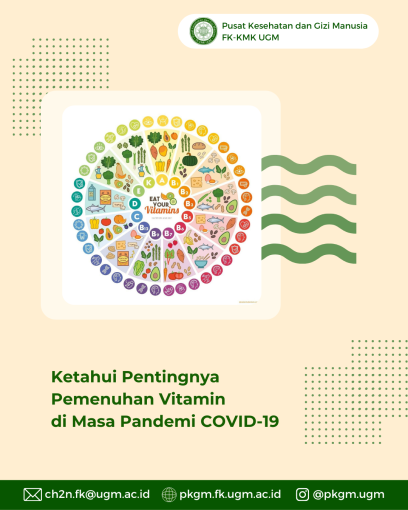
The case of the Omicron variant of COVID-19 is still the main case in Indonesia. On February 19, 2022, known daily cases reached 59.384, higher than last year’s peak of Delta’s daily cases of 56.757. However, the Ministry of Health stated that there was a decrease in daily confirmed cases of 10.900 on February 20 from the previous day, and active cases slowed slightly with the addition of 15.448 per day. Nevertheless, the government continues to make efforts to prevent the COVID-19 pandemic by increasing the complete vaccination program and booster doses. If someone has received the second dose within a minimum period of six months, it is strongly recommended to get a booster vaccination (Kemenkes, 2022). Several studies have shown that booster vaccines are considered to be more effective in preventing transmission of the Omicron variant of COVID-19 than the Delta variant (Omer and Malani, 2022).
In an attempt to increase the body’s immunity and prevent the current transmission of COVID-19, supplementation of vitamins A, C, E, and B complex is very important. Vitamin A has a role in protecting the body against infection by maintaining healthy tissue and skin surfaces in the mouth, stomach, intestines, and respiratory system. Adequate intake of vitamin A can be obtained from the consumption of carrots, broccoli, spinach, cassava leaves, sweet potatoes and several other foods fortified with vitamin A (Kemenkes, 2020).
Vitamin C is a nutrient that cannot be synthesized by the body, so vitamin C intake is very necessary. Vitamin C can act as an anti-inflammatory that can prevent oxidative stress so that it can boost the immune system (Shakoor et al., 2021). In supporting the immune system, vitamins also play a role in increasing the chemotaxis and phagocytic ability of neutrophils, increasing macrophage activity, and supporting the proliferation of neutrophils, monocytes, and phagocytes (Febriana, 2021). Consumption of vitamin C supplements in a day is recommended at a dose of 500-1000 mg in 1-2 times, considering the upper limit of tolerance for vitamin C intake should not exceed 2000 mg per day (Ahmed et al., 2022). While in foods rich in vitamin C, it can be found in fruits such as guava, papaya, oranges, tomatoes, strawberries, and kiwi.
Vitamin E has an immunomodulatory effect on cells of innate and adaptive immunity. Vitamin E is able to increase T cell production, increase NK cell activity, increase IL-2 cytokine secretion, increase lymphocyte response, and reduce the risk of infection (Shakoor et al., 2021). Based on several existing literature sources, vitamin E supplementation can improve the immune system and reduce the risk of infection due to some viruses and bacteria. Food sources that contain vitamin E include green vegetables and beans.
Vitamin B1 or thiamin can reduce mortality in sepsis patients in COVID-19 patients. Inadequate intake of vitamin B1 can induce an inflammatory response that can result in nerve cell death. Vitamins B2 and B3 may play a role in reducing proinflammatory cytokines. Vitamins B6, B9, and B12 are able to support the activation of cytotoxic T cells and NK cells to support immune function (Febriana, 2021). Vitamin B6 in the diet can be found in cereals, fish, chicken, meat, beans, and green leafy vegetables.
Most natural sources of vitamins are found in a variety of foods. Therefore, consuming a balanced diet as recommended by the Ministry of Health with the “Isi Piringku” principle can help meet vitamin intake. Fulfillment of sufficient vitamins during the COVID-19 pandemic is very important to prevent disease transmission.
- Ahmed, A. et al. (2022) The Combination of Quercetin and Bromelain with Zinc, EGCG, Retinoic Acid, Vitamin C and Vitamin D for the potential Symptom Reducer, Prevention, and Treatment for Coronavirus Disease 2019 (COVID-19).
- Febriana, L. (2021) ‘Potensi Suplemen dalam Tatalaksana COVID-19’, Continuing Medical Education, 48(2), pp. 93–96.
- Kemenkes (2020) ‘Panduan Gizi Seimbang pada Masa Pandemi COVID-19’. Kementerian Kesehatan RI.
- Kemenkes (2022) Kasus Konfirmasi COVID-19 Menurun Signifikan, Pemerintah Terus Mengimbau Disiplin Prokes dan Vaksinasi, Kementerian Kesehatan RI. Available at: https://sehatnegeriku.kemkes.go.id/baca/rilis-media/20220220/2839361/kasus-konfirmasi-covid-19-menurun-signifikan-pemerintah-terus-mengimbau-disiplin-prokes-dan-vaksinasi/ (Accessed: 20 February 2022).
- Omer, S. B. and Malani, P. N. (2022) ‘Booster Vaccination to Prevent COVID-19 in the Era of Omicron’, Journal of The American Medical Association, 327(7), pp. 628–629.
- Shakoor, H. et al. (2021) ‘Immune-boosting role of vitamins D, C, E, zinc, selenium and omega-3 fatty acids: Could they help against COVID-19?’, Maturitas, 143, pp. 1–9.
